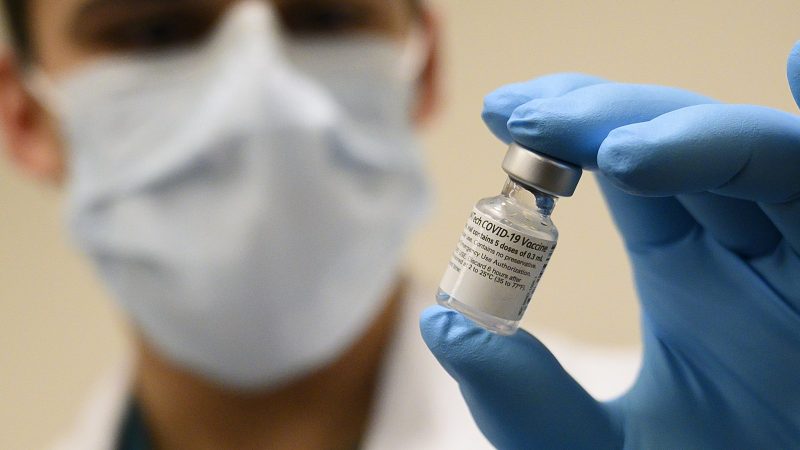'The NHS itself is almost perfectly designed for this task,' says Dr Joe McManners

It was Tom’s turn for his Covid-19 vaccination. My job was to consent and check safety questions, before the nurse gives him the jab.
Tom has autism and came along with his mum. I could see he was agitated and nervous, but his mum said he was also excited about getting the vaccine.
I know him well so we could get him through quickly with a few reassuring words. It took about 10 minutes for him to join the 20 million and counting vaccinated.
As a country we look like we are playing to our strengths with this vaccination programme. We are well ahead of most countries, both in numbers and speed off the mark, and there is a real buzz about this.
You can see there is a race to take credit, especially in government: it may be a ‘get out of jail card’ for Boris Johnson after a generally disastrous pandemic so far.
But who really is responsible for this success, and what does it teach us?
For Tom to have had his vaccine just a year after the pandemic wave hit us, is actually incredible. From a standing start, the scientists developed a vaccine within weeks. This wasn’t lucky, it shows the value of decades in institutions and people which needs to be protected and expanded.
Tom’s mum was full of praise for the process. She said it was ‘like clockwork’.
We have a wall in our coffee room full of thank you cards, this is not unique to us, indeed it is fairly typical across the country- we get the compliments on behalf of all the teams behind the process.
So what is that has worked so well?
Local is important; services close to people and their communities breaks down barriers, increases access and reduce inequalities. Tom lives round the corner; he doesn’t need to be driven or get familiar with a new building or town.
A trusting relationship between staff and patients helps, especially for the elderly or those with mental health problems – the right word from someone you know can be the difference between having a vaccine or not.
The NHS itself is almost perfectly designed for this task. We have a nationally led organisation with networks of local organisations that reach all the way from Whitehall into local communities.
Passionate local teams embedded in communities and linked to national systems means that we can mobilise rapidly, and be flexible but gain the benefits of scale. For Tom, we were able to take a decision to vaccinate him earlier than ‘allowed’ because local clinical autonomy is respected and backed up by a national support system.
We could contact him a few days after finding we had enough vaccine supply as our teams are small and nimble – they have had to be mobilised with sometimes a few hours’ notice. Simple things help- we also know who his main carer is and her mobile.
One of the underappreciated benefits we have of a nationalised health service is the registered list of patients. This is held in primary care but accessible across the health service.
It means that we can identify those ready for vaccinating easily, and target those most at need, addressing inequity. When patients have been worried about the vaccine, I have been able to directly talk to them about it, having a trusted person is especially valuable for the elderly or mentally unwell.
Take up rates of 90-95% for the first cohorts is impressive and shows the benefit of having this database, and for teams to be able to access it and use a personalised approach.
The success of this programme is one for all of the country; thousands of teams of nurses, volunteers, management and more have had to play their parts. It is also a genuine effort from the public; coming forward to receive the vaccine; showing gratitude and spreading the word has been so important.
Our institutions have needed to function well. Regulatory bodies and NHS leadership have had to play their roles and to get the big calls right. The biggest political call was to let the NHS get on with it.
Understanding what has worked is especially important as this could be a template of how we can restore the nation to health.
If our public services are well resourced and combine national infrastructure with local energy, knowledge and commitment, we have a chance of tackling our challenges.
As an example, it is unacceptable that people like Tom with Learning Disabilities die much earlier than the rest of the population.
Think how we could tackle these major crises in our healthcare with similar levels of resource and commitment from our leaders?
Dr Joe McManners is a full time GP and Oxford City Councillor representing the Labour Party. You can follow him on Twitter @joemcmanners or visit his website drjoemcmanners.com.
To reach hundreds of thousands of new readers we need to grow our donor base substantially.
That's why in 2024, we are seeking to generate 150 additional regular donors to support Left Foot Forward's work.
We still need another 117 people to donate to hit the target. You can help. Donate today.



